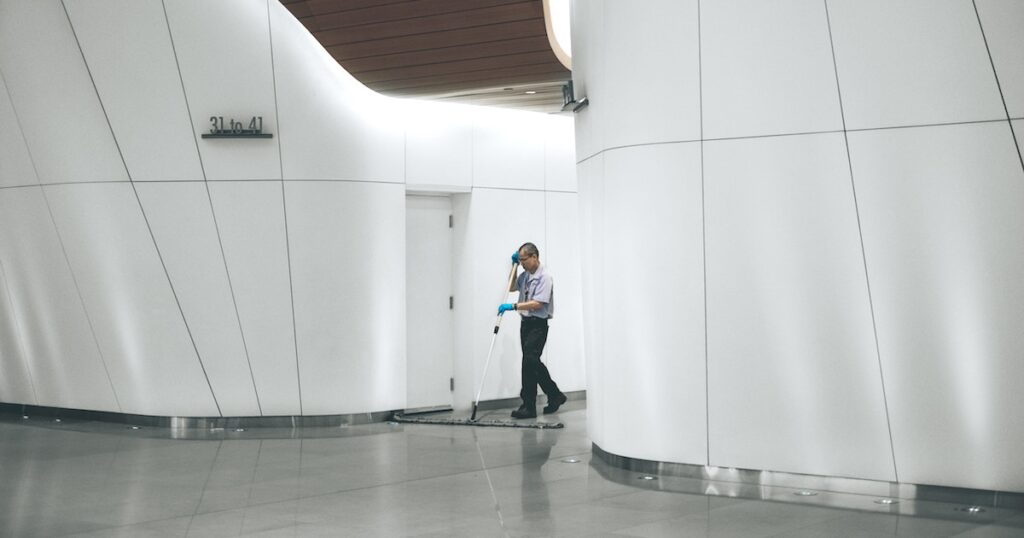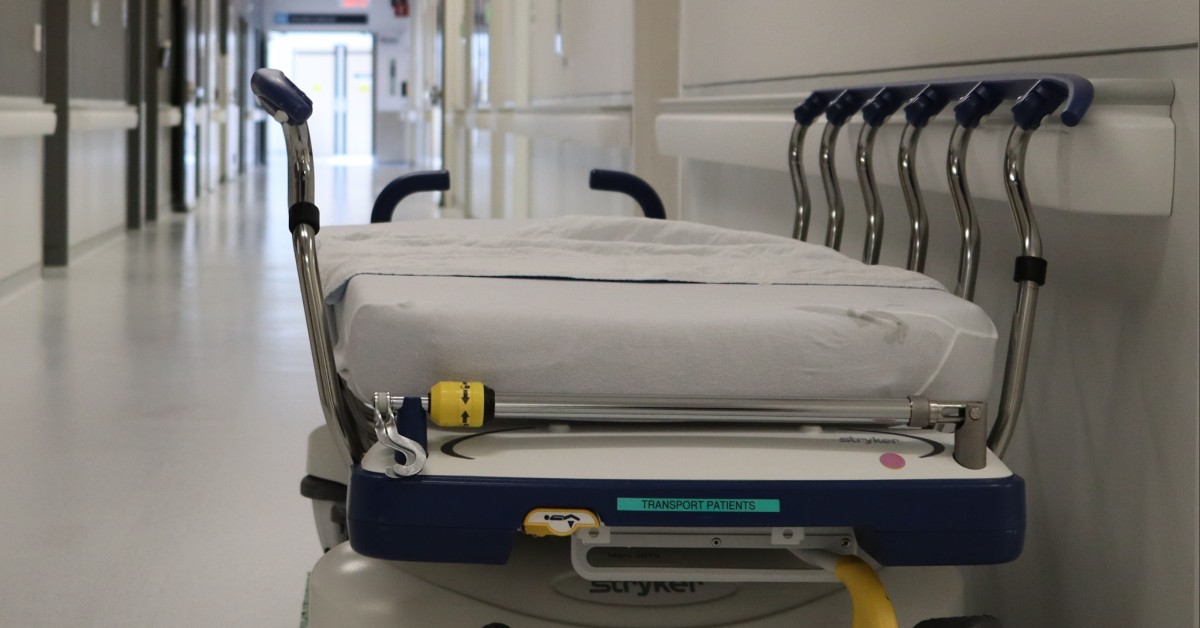
What is an MBA in Healthcare Management?
An MBA with a Healthcare Management concentration can equip you [...]

Did you know you can positively impact patient outcomes without becoming a doctor or nurse? You'll shoulder a lot of responsibility when you become a healthcare facility manager. However, you'll also have the satisfaction of knowing that what you do has a significant impact on the care provided by your hospital or clinic.
Managing a building or facility is a big responsibility; managing a hospital or other healthcare facility is especially so. Every aspect of facility management—from the way the facility is cleaned to how it is maintained, secured, and run daily—can impact patient outcomes, and therefore lives. Hospitals, long-term care facilities, outpatient surgical centers, and similar operations are subject to unique, stringent state health department codes, federal requirements, and other regulatory standards; failure to comply can result in the loss of Joint Accreditation. That will shutter a healthcare facility.
Healthcare facility managers (sometimes called medical facilities managers or administrators) work in hospitals, doctors’ offices, surgical centers, clinics, and anywhere else providers care for patients. They make sure buildings meet basic standards of health and safety, as well as those specific to healthcare settings.
It might sound like a straightforward job—keep everything clean and in good working order—but in the medical world, it’s often anything but. Additionally, healthcare facility managers can be responsible for helping facilities roll out new technologies and for meeting energy efficiency and sustainability goals. They may also be in charge of overseeing renovation projects and new construction.
In most cases, it’s a big job; managing infrastructure and facilities operations for a hospital means always having a lot of balls in the air. If you think you’re up to the challenge—and if you have an analytical mind and an eye for detail—this might just be the career for you.
In this article about how to become a healthcare facility manager, we’ll cover:
A healthcare facility manager is a professional facilities manager responsible for overseeing the development, maintenance, security, and operations of healthcare facilities. They’re there when buildings are being constructed to make sure that everything is in compliance with all relevant codes and regulations. Before a facility opens, the healthcare facility manager creates a plan for facility management that includes processes and expectations for maintenance personnel. When it opens, the facilities manager continues to ensure that the facility is safe and functioning smoothly.
A great healthcare facility manager will do all that and more in a way that’s nearly undetectable to providers and patients. They create processes that guarantee that facilities issues never interrupt hospital operations.
Facility managers’ work typically involves many operational areas of a facility. When you become a healthcare facility manager, you will:
To do all this, you need to be highly organized as well as flexible and comfortable working with everyone from surgeons to landscapers. Having a sharp memory is a huge asset in this role because healthcare facility managers need to remember a lot of local ordinances as well as federal guidelines, regulations, and standards—and be aware of when new ones will be rolled out, and old ones expire. Finally, facilities managers need to be always thinking about ways to keep costs under control and to maintain the value of the facility’s assets.
It’s possible to work your way up to a healthcare facility manager position with nothing more than a high school diploma or associate’s degree plus a lot of drive, but it’s easier to land a job in facilities management with a bachelor’s degree. People in facilities management study engineering, information management, technology, construction, business, architecture, and even healthcare administration. That’s because there are relatively few degree programs focused entirely on facilities management. You can find Bachelor of Science in Facility Management or similar programs at:
There are master’s degree programs in facilities management at:
You can find a full list of IFMA Foundation-accredited facilities management programs here. What may jump out at you is that there aren’t many of them. That may be because education isn’t all it takes to become a healthcare facility manager. Certification is recommended, and work experience in a healthcare setting is highly valued—possibly more than any degree.
Not all healthcare facility managers are certified, but certification is worth pursuing if you’re interested in becoming a facilities manager in the healthcare industry. The gold standard in certification for healthcare facility managers is the Certified Healthcare Facility Manager (CHFM) credential offered by the American Hospital Association. Many employers—especially hospitals and hospital networks—require facilities managers to hold this certification. The certification process involves passing an exam focused on five key areas of facilities management:
You have to have documented work experience in a healthcare setting to take the exam, so certification serves as proof that you’ve worked in medical facility management, construction, or facility maintenance. Maintaining CHFM certification requires completing at least 45 contact hours of continuing education, so your certification also demonstrates your commitment to staying current in the field.
That’s not the only reason to get certified, however. According to the 2017 Health Facilities Management salary survey, having the CHFM credential can add more than $25,000 to your paycheck.
The International Facility Management Association (IFMA) also offers more general certifications for facility managers, including a Facility Management Professional credential and a Certified Facility Manager credential. And the Association for the Health Care Environment recently added the Certified Health Care Environmental Services Professional (CHESP). These may prove useful in healthcare facilities management jobs or if you decide to pivot away from medical facility management.
Healthcare facility managers need to be well-versed not only in the ins-and-outs of facilities management but also in:
The IFMA has an Essentials of Facility Management course that can get you started, and the American Society for Health Care Engineering has a lineup of courses for healthcare facility managers that can help you prepare to move into this role. If you already have a strong grasp of business and facility management fundamentals, you can take courses like their Finance and Budgeting for Facility Managers e-learning class or Electrical Systems for Health Care Facilities workshop. Courses like these can’t replace professional experience in facilities management or equal the value of a bachelor’s degree. However, they can give you an advantage when you’re looking for your first healthcare facility management job.
You should also join your local IFMA chapter, go to workshops, check out the online job board, and start networking. You have nothing to lose by reaching out to other members to ask about apprenticeships or how to become a healthcare facility manager.
When it comes to pay, this is a pretty great job. According to PayScale, the average healthcare facility manager salary is about $98,000. That doesn’t necessarily mean you’ll make that much. New managers probably make less and facility managers with 10 or more years experience can make more (the top 10 percent of healthcare facility managers make $130,000). Certification, or lack thereof, may also play a role in how much you actually make when you become a healthcare facility manager. That said, you’re probably going to make more than facilities managers in other industries.
Yes, though it can be a stressful one. Failure to meet compliance goals or regulatory standards can result in poor public relations, loss of federal money, work stoppages, or even injuries to patients. The stakes are simply higher when you’re a facilities manager for a healthcare facility, which is probably why healthcare facility managers are paid more.
Facility operations play a big role in patient and provider safety. While it might not seem like healthcare facility managers play an active role in enhancing patient outcomes, they absolutely do. Smart facilities management helps prevent the spread of aggressive pathogens. Effective supply chain management helps patients get what they need to heal more quickly. Technology infrastructure in medical facilities can help prevent deadly mistakes.
Becoming a healthcare facility manager isn’t just about caring for buildings, but also caring for people. This career can be especially rewarding because of that.
(Last Updated on February 26, 2024)
Questions or feedback? Email editor@noodle.com

An MBA with a Healthcare Management concentration can equip you [...]

On average, health services managers earn over $100,00 per year. [...]

Health care systems require social workers to assist individual patients [...]

The average salary for industrial engineers varies based on specialization, [...]
Categorized as: Healthcare Management, Medical Office Administration, Business & Management